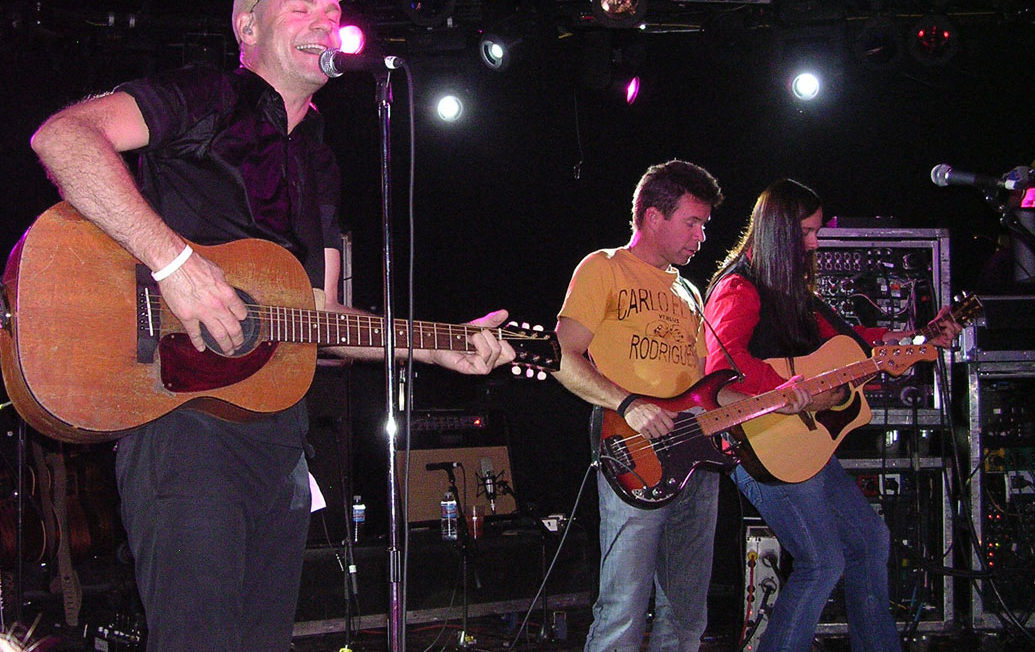Tom Thomson drowned in 1917 while canoeing in Algonquin Park, which he had previously depicted in many of his sketches and paintings. A post-impressionist landscape artist, his legacy was, and is, the Group of Seven school of painters who committed the far reaches of Canada to canvas between 1920 and 1933.
I’ve often thought The Tragically Hip possesses something of a Group of Seven quality. There isn’t a corner of this country they haven’t painted through song; their music has shown us the breadth of our land, recounted our history and reinforced our ideals.
The Hip have shown us who we are, and in that they are very much Canada’s band.
“Canada’s band.” Can there be such a thing? Can we fairly universalize the Kingston quintet, especially when we’re packing elements as variable as artistic taste into the term?
I tend to think so, because music is merely the entry into what they more broadly represent.
Canada, it’s worth remembering, is every bit a “railway nation.” Our first, national project was to bind ourselves—to link east and west—and to do so quickly and effectively enough to stave off American encroachment.
In many ways never drilled the final spike. Unifying the expanse of our territory and the people who live within it, and ensuring some measure of separation between ourselves and the United States, remains an ongoing endeavour—one that has taken on numerous guises down the years.
Hockey Night in Canada has long been a national unifier, as has the CBC and, for their part, the Group of Seven. The Tragically Hip serves the same purpose. And, as front-man Gord Downie reminded us during Saturday’s concert in Kingston, our railway must also run north.
Downie, who revealed in May that he had been diagnosed with terminal brain cancer, took the opportunity at what may well have been The Hip’s final performance to decry the country’s treatment of its northern First Nations, and Indigenous people, generally. He said it with passion, because the matter is pressing. He said it with urgency, because he might not have much time.
But he also said it with hope. No cynicism here. Because The Tragically Hip’s Canada, Downie’s Canada, can always be better, can always be grappling, can always be hopeful.
Downie, himself, was all of those things on Saturday.
Backstage, before emerging into the pandemonium that was Rogers K-Rock Centre, he kissed each of his band-mates: Rob Baker, Johnny Fay, Paul Langlois and Gord Sinclair. There was friendship, brotherliness, in those kisses, but there was solemnity, too. This was goodbye, and what followed was predictably more funereal than festive.
I say “predictably,” and yet I found myself overcome with far more emotion than I had expected. Many in the arena, in the jam-packed city square and throughout the country, watching the CBC broadcast, no doubt experienced the same thing, the same overwhelming sense of gravity they hadn’t prepared for, even if they thought they had.
There was Downie, in front of the country in those glittering, ostentatious suits and feathered hats. He seemed to be saying, “Look at me!” Part of us didn’t want to look. We’re uncomfortable when suffering is right in front of us. And sufferers, in that final, mortal grappling, often don’t want to be seen. He was being brave, and he required bravery from us, too.
And so we watched, often in tears (I can say that for myself, anyway), as Downie battled with himself for every phrase, every movement. It was an awkward spectacle; it was also beautiful and heroically human. Concluding the second encore with “Grace, Too,” he screamed relentlessly and incoherently into the microphone, his bellows drawing from a place of writhing, guttural pain.
Moments later he dropped the mic and wrapped his arms around himself as he wept. I wanted to jump through the screen to hug him. I wanted, in that moment, to hug everyone I know and ever knew—to ease pain and give comfort, to restore health and confer justice, to smile at and be smiled back at.
We rarely experience these sensations. At least, not as much as we might. It takes something special to create them. It takes a unifier.
I happen to think there is also something quite Canadian about such outpourings, about always being better, always grappling, always being more hopeful.
At least, that’s the Canada Gord Downie has shown us.
I want to live in Gord Downie’s Canada.
***
Jerrad Peters is a Winnipeg writer and Creative Content Specialist at Providence University College and Theological Seminary.
